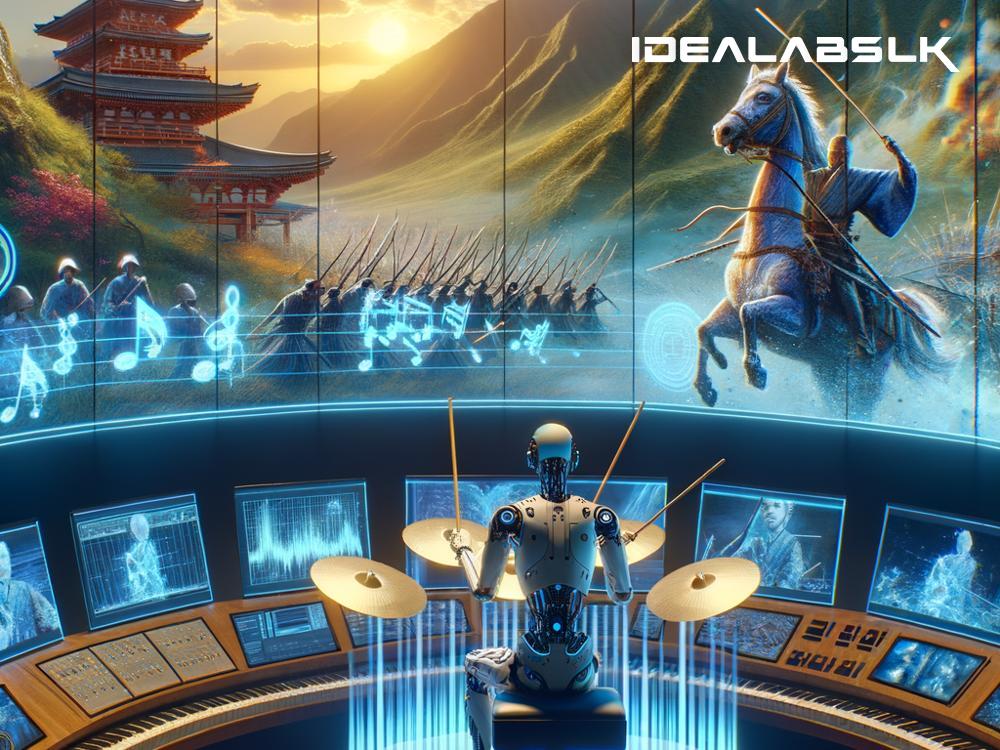Title: Exploring the Future: How AI is Elevating Music in Gaming
Have you ever imagined a world where the music in your favorite video game adapts and evolves according to your every move? Where the soundtrack seamlessly aligns with your emotions, the intensity of your battles, and even the pace of your character's steps? This isn't a snippet from a science fiction novel; it's the future of gaming soundtracks, a future that's becoming increasingly real thanks to the wonders of Artificial Intelligence (AI). Let's dive into how AI is set to revolutionize the way we experience music in games, taking a closer look at what we might expect in titles like the eagerly anticipated "Ghost of Tsushima 2" in 2024.
AI-Generated Music: The Basics
Before we explore the horizon, let's understand the basics. AI-generated music refers to compositions created with the assistance of artificial intelligence. This doesn't mean AI is replacing composers but instead, it's about machines and humans working together to create something unique. AI can analyze vast amounts of data, learning from existing musical scores and styles, then generating new pieces of music that resonate with those influences.
Adaptive Soundtracks: A Game Changer
Gone are the days when video game music was a looping background track. Adaptive soundtracks have been a game-changer, altering music based on the player's actions, decisions, or even their in-game emotional journey. Combining this adaptiveness with AI-generated music takes the concept to a whole new level.
The Future with AI in Games like "Ghost of Tsushima 2"
"Ghost of Tsushima," with its breathtaking landscapes and immersive gameplay, already boasts an incredible soundtrack that complements its storytelling. For its sequel, scheduled around 2024, imagine an AI-powered soundtrack that's never the same twice. Here's how AI can further elevate the musical experience:
-
Dynamic Composition: As your character traverses through different terrains, the music subtly shifts. Crossing from a serene countryside into enemy territory, the music intensifies, heightening the sense of danger—all of this happening fluidly, thanks to AI's capacity to generate music in real-time based on the game's environment and the player's location.
-
Emotionally Responsive: AI can take cues from your gameplay style—aggressive, stealthy, or compassionate—and adjust the music accordingly. If you're in a tense standoff, the soundtrack grows more suspenseful. This responsiveness can significantly enhance emotional depth and player connection to the game.
-
Player-Generated Influence: Imagine planting seeds that grow into trees in a virtual forest, and each tree has its unique sound profile, contributing to the overall music of the area. Such player-generated changes in the game environment could influence the music, making each player's experience truly unique. AI can manage and integrate these vast, complex inputs, creating a personalized soundtrack for every player.
The Technology Behind the Magic
This magic is made possible by advancements in machine learning, a subset of AI, where algorithms learn from data, improving their performance without being explicitly programmed for every task. For AI-generated music, these algorithms analyze existing compositions, learning structures, patterns, and styles, which they can then apply to generate new music that fits the desired mood, scene, or action in a game.
The Human Touch
While AI plays a pivotal role, the human touch remains irreplaceable. Composers and game designers set the creative direction, input the data the AI learns from, and fine-tune the output to ensure it aligns with the game's vision. AI doesn't replace artists; it serves as a new tool that unlocks unprecedented levels of creativity and personalization.
Looking Ahead
As we look towards 2024 and beyond, the integration of AI in creating adaptive soundtracks for games like "Ghost of Tsushima 2" represents just the beginning of a new era in game design. This technology promises to create a more immersive, personalized gaming experience, where the soundtrack plays a pivotal role in storytelling and gameplay, adapting not just to the choices you make but to the very essence of your playstyle.
In conclusion, the future of game soundtracks lies not in predetermined, static compositions but in dynamic, emotionally responsive scores that adapt in real-time to each player's journey. With AI's relentless evolution, the line between the player and the game continues to blur, crafting experiences that are more engaging, immersive, and personal than ever before. As we edge closer to 2024, the anticipation for how AI will redefine our gaming experiences grows, setting the stage for a world where every note, every chord, tells your story, your way. Welcome to the future of gaming music, where your actions compose the soundtrack of your adventures.

